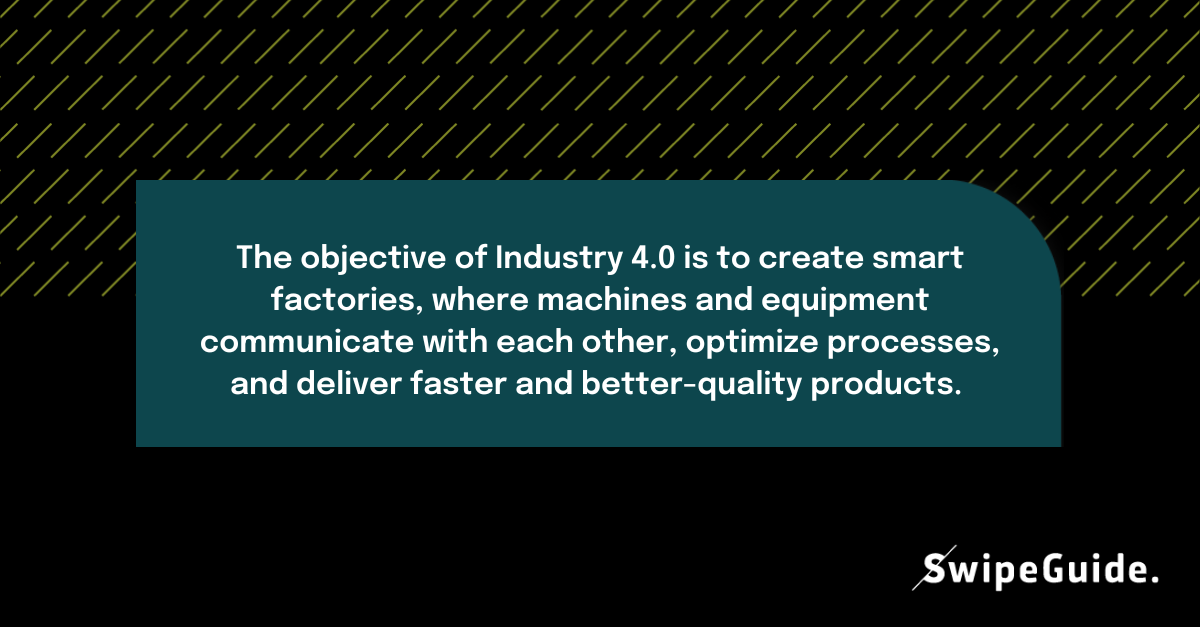The fourth industrial revolution, Industry 4.0, has been rapidly transforming the manufacturing sector by integrating advanced technologies such as artificial intelligence, the Internet of Things (IoT), robotics, and cloud computing.
 However, despite the increasing automation and digitization of processes within smart manufacturing, human workers remain crucial to the success of Industry 4.0.
However, despite the increasing automation and digitization of processes within smart manufacturing, human workers remain crucial to the success of Industry 4.0.
This article explores the reasons why human workers are still essential in Industry 4.0 and why we need to embrace the concept of "Human 4.0".
Human 4.0 =
A new generation of tech-savvy manufacturing workers that deal with intelligent and interconnected IoT systems in their daily work. The human 4.0 workers are supported by industrial tech solutions that help them perform their tasks. "Connected worker" is a very closely related term.

01. Flexibility and adaptability.
One of the most significant advantages of human workers is their flexibility and adaptability.
- Humans: can easily switch between different tasks, learn new skills, and adapt to changing environments.
- Machines: are designed for specific tasks and require reprogramming or modifications to perform different operations. I
In an Industry 4.0 environment, human workers can provide the necessary flexibility and adaptability to meet the demands of rapidly changing production cycles, market conditions, and customer requirements.
02. Decision-making and problem-solving.
Despite the advancements in artificial intelligence and machine learning, human workers still have a significant advantage when it comes to decision-making and problem-solving.
- Humans: can analyze complex data, identify patterns, and make decisions based on experience, intuition, and judgment.
- Machines: rely on algorithms and cannot account for unexpected events or deviations from the norm.
"Human 4.0" can play a critical role in identifying and resolving problems, ensuring quality control, and improving overall efficiency.
03. Creativity and innovation.
One of the most significant benefits of human workers is their ability to be creative and innovative.
- Humans: can think outside the box, generate new ideas, and come up with solutions.
- Machines: cannot.
In smart manufacturing, humans can develop new products, processes, and services. This can help companies stay ahead of the competition and meet the evolving needs of customers.
04. Human interaction and connection.
Despite the increasing automation of manufacturing processes, human interaction remains critical in many aspects of production.
- Humans: are better at communicating with other humans, managing teams, and collaborating on projects.
- Machines: don't have emotions, so they can't impact a positive company culture in the same way as humans can.
Human workers provide the interpersonal skills to manage complex projects, resolve conflicts, and foster a positive work environment.
05. Quality control.
- Humans: can detect subtle defects, ensure compliance with safety standards, and perform final quality checks before products are shipped to customers.
- Machines: can perform repetitive tasks with high accuracy, they cannot match the level of quality control provided by human workers.
Human workers still play a critical role in ensuring that products meet the highest standards of quality and safety.
06. Ethics and morals.
Finally, human workers bring a unique perspective to the manufacturing process, including ethical and moral considerations.
- Humans: can identify potential risks, make ethical decisions, and take responsibility for their actions.
- Machines: can make decisions based on data, but have very limited capability when it comes to ethics and moral.
In an Industry 4.0 environment, human workers ensure that companies operate ethically and responsibly, taking into account the impact of their products on the environment and society.
Embrace the Human 4.0.
In conclusion, the integration of advanced technologies in manufacturing processes has undoubtedly transformed the industry.
However, despite the increasing automation and digitization of manufacturing processes, human workers remain crucial to the success of Industry 4.0.
Human workers can provide the necessary flexibility, adaptability, decision-making, problem-solving, creativity, innovation, human interaction, quality control, ethics, and morals to ensure the smooth operation of smart factories.
We need to embrace the concept of "Human 4.0" and recognize the critical role that human workers play in smart manufacturing.
Learn more about future-proofing your operations:
👉 5 Smart Manufacturing Trends To Boost Productivity.
👉 The Human Side of Manufacturing Technology
👉 Empowering a Culture of Operational Excellence








